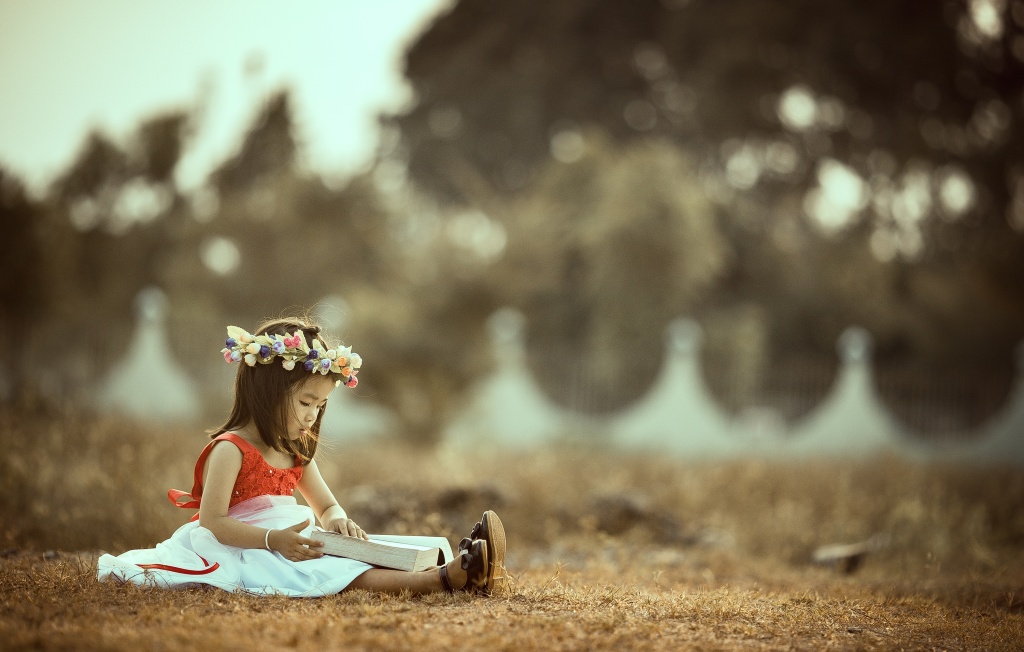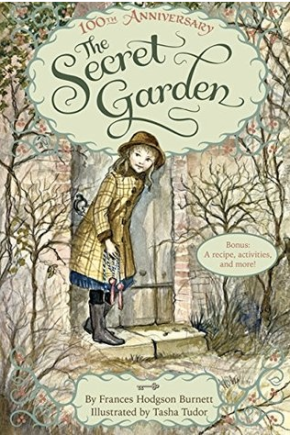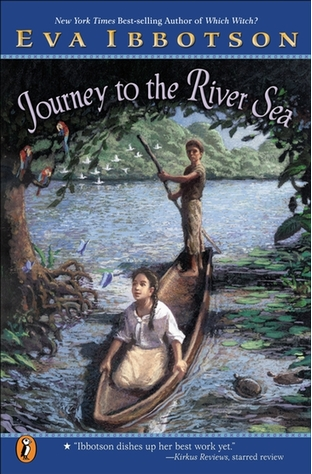 For a long time, The Secret Garden has reigned supreme as my favourite book, but in January 2017, its forty-year rule of my Favourites bookshelf came to an end. Which children’s book knocked Frances Burnett Hodgson’s classic from its perch? Read to the end to find out!
For a long time, The Secret Garden has reigned supreme as my favourite book, but in January 2017, its forty-year rule of my Favourites bookshelf came to an end. Which children’s book knocked Frances Burnett Hodgson’s classic from its perch? Read to the end to find out!
The Secret Garden is the book that turned me into a lifelong reader and planted the seed of desire to write books. Why exactly did it make such a lasting impression on me? Was it about the book? Content, character, setting, cover design? Or was it about the reader? Age, readiness, timing? These are questions I’m pondering as a creator of children’s literature. What makes a book a classic?

A Book Hugger is Born
I distinctly remember finishing The Secret Garden and clutching it to my heart. I turned back to the first page and hovered there for a moment, tempted to start over then and there just to extend my time with the characters in their world.
I didn’t reread it. Instead, I savoured the delicious post-book thrill. With a rainbow of emotions zinging through me, I felt as if my heart had strings and someone had strummed a mysterious new chord. Happiness and satisfaction vibrated on the high notes, while loss and longing thrummed on the low.
Sounds Almost Psychedelic…
What was it that made my eleven-year-old heart swoon for The Secret Garden? My guess: neurochemicals. A crazy literature-triggered cocktail of endorphins, dopamine, serotonin and oxytocin made me go gaga and googly-eyed over a book.
Dopamine is the main neurotransmitter of the brain’s reward and pleasure system. It plays a positive part in bonding, love, sex, and motivation, and on the negative side, it is a factor in all kinds of addictions. I haven’t been able to find any quality research proving that reading great books triggers the release dopamine, but if computer games, television and music can, I don’t see why good books can’t.
It’s all about Pleasure &Reward.
If a reading habit starts very young, children learn to associate books with all sorts of pleasant, happy things like comfort, safety, and positive attention. Books equal nurturing.
Parents can set the stage for a lifetime of reading, but what about the writers of children’s literature? Can we maximise the pleasure and reward factors of books? I think so! If we tick these boxes, we can make the reading experience truly memorable and rewarding.
Connection
Relatable characters increase readers’ engagement with the story. Now, this is coming from someone who dislikes the word relatable. However, remember: one of the reasons kids (everybody, really) read is because they don’t want to feel alone. They (we) seek connection and validation. So give kids characters that ring true. Make your protagonist not too perfect. Stick a thorn in their flesh, a flaw that they have to master. And relatable doesn’t mean vague or blank or ‘insert a you-shaped facsimile here’; it means authentic. Little details, funny quirks, secret foibles and fears—these are the things that make characters relatable. (Read this for food for thought on ‘relatability‘).
In The Secret Garden, Mary Lennox was a sour, unlikable little girl, which would seem ‘unrelatable’. She had suffered a lot, having lost parents to typhoid and been transplanted to the other side of the world to live with strangers. Few kids today can relate to this, but most children have had moments of being contrary or have said horrible things or felt angry at everyone. Mary is relatable because her response to loss is authentic.
Significance
Make the stakes high and also meaningful to kids. Who cares about an evil madman who wants to rule the universe unless it impacts your kid protagonist personally (and your young reader vicariously)? The madman’s sinister deeds have to threaten the protagonist’s school or soccer team, and the outcome has to change the hero—not just save the universe for another rotation of the earth on its axis. Your readers must care about both the problem and the outcome.
Mary Lennox lost everything, so the question is: is restoration possible? Can she ever belong again? Can her frozen heart thaw? The garden is a metaphor for the healing of the characters and the blossoming of hope and possibility. If Mary and the garden can regenerate and flourish, it gives readers hope that they too can heal and thrive.
Agency
Give the protagonists as much agency as possible. The kid heroes, not their parents or teachers, must be the primary doers. The heroes must be pint-sized (or more or less the size of your readers) but supremely resourceful. The best way to ramp up the reward/pleasure factor is to make the kid save the day by sheer determination and clever thinking. Avoid adult saviours and magical shortcuts for maximum reader satisfaction.
Mary Lennox is left to her own devices at Misselthwaite Manor, which is sad for a child who’s lost her parents and her home. Mary uses her freedom to her advantage. Unencumbered by adult interference, she seeks and finds; she toils and reaps; she makes herself vulnerable and wins. And in all this doing, she changes, heals herself and helps others.
Senses
Let your readers ride in the skin of your protagonist. Sensory detail and visceral responses help draw your reader in. But show it, don’t tell it.
Dickon with his sweet nature is a wonderful foil for sour Mary Lennox. Compare mollycoddled Colin Craven who’s restricted to a dreary room and rigid routine for his lifetime to a girl who experienced the colourful world of India and roamed the lonely moors, a girl about whom no one cared a bit, not her distracted, socialite parents when they were alive, and not her heartsore, distant uncle. These contrasts are brilliant showing exercises to help the reader zero in on the frustrations and experience the truths in their starkness.
My New All Time Favourite Book

The Secret Garden was supremely satisfying, but I recently read another book that pipped it. Eva Ibbotson’s Journey to the River Sea surpassed my old favourite. I loved it from cover to cover, and when I turned the last page, I burst into tears, startling my husband. “It’s the best book I’ve ever read,” I sobbed.
That perfect, mysterious chord of emotions thrummed in my soul: elation at the satisfying resolution; loss at leaving the world and its inhabitants behind. Professional jealousy and inspiration vied uncomfortably inside me. Here’s a link to my Goodreads review.
Journey to the River Sea ticks all of the boxes—and then some! Twists galore, fantastic characters, hateful villains, a setting to swoon over…
Connection – we’ve all felt friendless and alone and utterly unwanted.
Significance – What greater need than to find a place where you belong and matter.
Agency– Maia is resourceful and brave in bucket loads. Her governess, Miss Minton says, “Children must lead big lives… if it is in them to do so.” With this belief firmly fixed, she lets Maia star, doing all the exploits and working out the puzzles on her own.
Senses – a feast. It’s set in Manaus, Brazil along the Amazon at the turn of the century. The characters are British and very much out-of-place, but it is one’s attitude that makes all the difference.
My Aspiration
My highest goal as a children’s writer is to create for my young readers that singular experience of exalting in the joy of reading. I won’t mind a bit if a few neurotransmitters enhance the moment and motivate kids to keep reading!
Image Credit: Mi Pham, via Unsplash

Leave a Comment